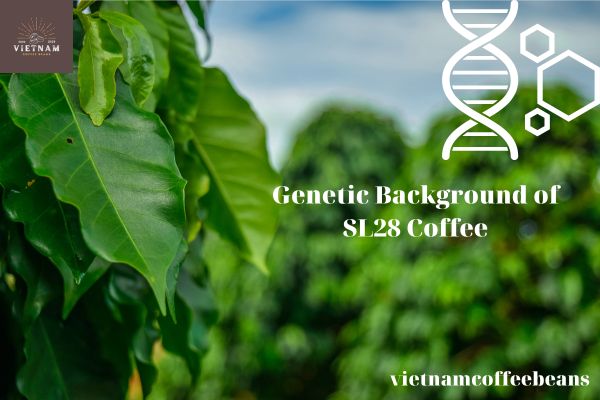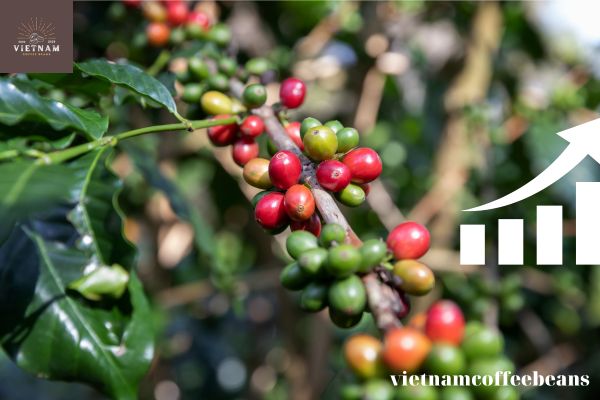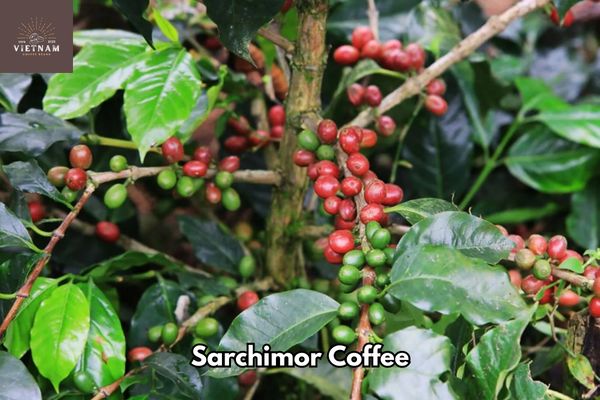As a coffee lover, I’m always looking for varieties that produce top quality beans and have high crop yields. I recently learned about an African Arabica type called SL28 Coffee that seems promising on both fronts.
Originally developed in the 1930s at Scott Laboratories in Kenya, SL28 grows tall with distinctive green-tipped leaves. It’s been specially bred to withstand droughts and thrive in high elevations – two major challenges for coffee growers. Additionally, SL28 has natural resistance to harmful coffee diseases like leaf rust, nematodes, and coffee berry disease. These resistances help ensure large harvests every season.
SL28 also produces a high ratio of coffee cherries to green coffee beans per plant. It typically grows well at densities of 1000-2000 plants per hectare and starts producing cherry fruit in year three. With advantages like these for high productivity, it’s no wonder SL28 has become a popular variety among coffee farmers in Africa.
Takeaways
- SL28 coffee, a renowned Arabica variety, was developed in the 1930s by Scott Agricultural Laboratories in Kenya.
- This variety is distinguished by its exceptional drought resistance and possesses a unique flavor profile, marked by bright acidity and fruity notes.
- Grown predominantly in the high-altitude regions of Kenya, SL28 excels in its native environment, yet it requires careful management due to its susceptibility to diseases like coffee leaf rust.
- Favored by specialty coffee enthusiasts worldwide, SL28 coffee is celebrated for its complex and wine-like qualities, which are enhanced through specific brewing methods like pour-over.
- Despite facing challenges like climate change, SL28 coffee continues to play a vital role in Kenya’s coffee industry, symbolizing not just a beverage but a rich heritage and a testament to the country’s coffee cultivation expertise.
What is Sl28 Coffee?
SL28 is the most prized coffee variety grown in Kenya. It was originally developed by Scott Laboratories in Kenya in 1931. The researchers selected SL28 from the Tanganyika Drought Resistant variety, which traces back to the Bourbon coffee variety.
Buyers flock to the Nyeri region of Kenya because of SL28’s exceptional cup quality and high yield. The “SL” in SL28 stands for Scott Laboratories, and 28 was the serial number assigned to this variety.
With its origins from Tanganyika Drought Resistant and Bourbon varieties, SL28 inherited great taste and hardiness. The combination of flavor and high productivity make it the flagship coffee for Kenya.
Origin and Characteristics

The SL28 coffee variety originated in the 1930s at what is now called the National Agricultural Laboratories (NARL) in Kenya. It was bred as a selection from the Tanganika Drought Resistant variety, which has its genetic origins in Bourbon coffee.
SL-28 is renowned for its large beans and exceptional cup quality potential when grown at high altitudes. It has natural resistance to major coffee diseases like leaf rust, nematodes, and coffee berry disease. Its tall growth and green-tipped leaves also make SL28 well suited to medium to high elevations.
SL28 typically has a high yield with a high cherry to green bean ratio. It thrives when planted at densities of 1000-2000 plants per hectare. This variety is highly regarded across Africa and genetic tests confirm it belongs to the Bourbon family.
Through careful selection and testing for desirable traits like drought tolerance and flavor, researchers developed SL28 into an exceptional Arabica coffee. Today it contributes to thriving coffee industries in Kenya, Malawi, Uganda and Zimbabwe.
Genetic Background Of SL28 Coffee

Exploring the SL14 coffee variety, with its own distinct attributes, adds another layer of understanding to the genetic influences within the coffee world. The genetic background of SL28 coffee, intertwined with the exploration of SL14, showcases the complexity and richness of the coffee gene pool.
I’m very familiar with SL28, a high-yielding coffee variety that originated in Kenya. SL28 is related to the Bourbon Typica variety group and was selected from Tanganika Drought Resistant stock.
Here are three reasons why this specialty Arabica is so impressive:
- It has natural resistance to major coffee diseases like leaf rust, nematodes, and coffee berry disease. This helps ensure good harvests.
- Genetic tests confirm it belongs to the Bourbon Mutation family of coffee varieties.
- It tolerates drought well and can remain productive even when untended for years.
With its resilience and high yield potential, SL28 is an excellent choice for coffee farming at medium to high altitudes in Central America and Africa. It can produce great tasting coffee even at elevations over 1500 meters.
For growers looking for a hardy, high-yielding variety suitable to high altitudes, SL28 is a great option. Its qualities make it a popular choice to contribute to thriving coffee production in its native Kenya and beyond.
Growing Requirements

While understanding Starmaya coffee, another hybrid coffee variant, might lead to some common ground, SL28 has its unique cultivation needs. It typically requires well-drained, fertile soil and specific temperature ranges to thrive.
I have found that SL28 requires a high planting density of 1000-2000 plants per hectare and starts to produce fruit in year 3. It is susceptible to major diseases such as coffee leaf rust, nematodes, and coffee berry disease, making it important to plant at the optimal altitude based on latitude.
| Optimal Altitude | Disease | Susceptibility |
|---|---|---|
| Varies by latitude | Coffee leaf rust | High |
| Nematodes | High | |
| Coffee berry disease | High |
With its high yield potential and exceptional quality potential, SL28 is an ideal coffee variety for medium to high altitudes.
The story of Mibirizi coffee serves as a testament to the profound commitment and skill of these farmers, exemplifying their commitment to producing exceptional coffee.
What is the difference between SL28 and SL34?
SL-34 is a coffee variety that is structurally very similar to the popular SL-28 trees. The main visual difference between the two is that SL-34 has dark bronze-colored leaf tips, contrasting with the green tips of SL-28.
Despite their similar appearance, SL-34 trees have some drawbacks compared to SL-28. SL-34 demands more nutrition and tends to have slightly lower yields. Much like SL-28, the SL-34 variety is also highly susceptible to threats like coffee berry disease, leaf rust, and pests.
So while the two share visual similarities, SL-34’s lower productivity and higher care requirements make it less ideal for large-scale cultivation compared to the hardy and high-yielding SL-28 variety. Their shared susceptibility to major coffee diseases is a point of concern for both.
Frequently Asked Questions
Conclusion
Sl28 coffee, a coveted heirloom variety hailing from Kenya, is a testament to the impeccable craftsmanship and dedication of coffee farmers, as its distinct flavor profile, reminiscent of vibrant citrus, blackcurrant, and wine notes, showcases the remarkable fusion of Jackson Bourbon Arabica genetics that make it a true delight for discerning coffee enthusiasts.
SL28 is an ideal choice for coffee growers looking for a high-yield variety with exceptional quality potential. It’s tolerant of drought and high altitudes, resistant to diseases, and has a high cherry to green bean ratio.
Plus, it’s a beloved variety in Africa, making it a great option for growers looking to maximize their yield and quality.
With its excellent characteristics and adaptability, SL28 is sure to be a staple in many coffee farms for years to come.






